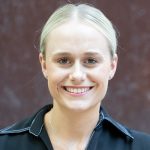Up to 80% of people with MS experience fatigue, and half of those affected by fatigue report challenges when performing work, exercise, and activities of daily living. This not only impacts the individual, but also family and friends of the person with MS.
For many decades, researchers have studied mechanisms underlying fatigue from a neural (brain and spinal cord) perspective and a muscular perspective in people who do not have MS. However, there is a lack of translation of this work into the MS population.
This project will use cutting-edge neurophysiology methods to assess fatigue-related factors in people with MS. Associate Professor Justin Kavanagh and his team will examine how the brain and spinal cord is compromised during fatigue-inducing exercise.
The team will then delve further into muscle physiology and study underlying muscle metabolic consequences of MS, and how this may impact on fatigue characteristics in this population.
This project will not only provide a clear understanding of factors that impair physical activity in people with MS, but the data will also enable a better understanding of what features of fatigue people with MS report to clinicians.
In clinical settings, it is common to characterise MS fatigue using detailed (self-reported) fatigue scales. This project will provide great insight into the relationship between self-reports of fatigue and quantifiable dysfunction in the motor system.
Associate Professor Justin Kavanagh and his team explored how fatigue affects muscle activation in people with MS using advanced physiological techniques. The research consisted of two main experiments. The first experiment used transcranial magnetic stimulation (TMS) and motor nerve stimulation, both non-invasive techniques, to study muscle fatigue. It revealed that people with relapsing-remitting MS have a reduced ability to activate their muscles after intense exercise, and this reduced muscle activation was linked to the duration of the disease rather than self-reported fatigue levels.
The second experiment, which is nearing completion and is already showing promising results, involves measuring muscle oxygen consumption and oxidative capacity (the ability to use oxygen to produce energy) during muscle contractions. Data collection is almost finished, with only six more participants needed.
Overall, this study provided valuable insights into the complex interactions between MS, muscle activation, and fatigue and has provided important groundwork for further research into this area.
Brotherton, E.J., Sabapathy, S., Heshmat, S., and Kavanagh J.J. (2023). Voluntary muscle activation in people with Multiple Sclerosis is reduced across a wide range of forces following maximal effort fatiguing contractions. Journal of Neurophysiology. 130(5):1162-1173.
Updated 31 March 2024
$25,000
2023
1 year
Past project




